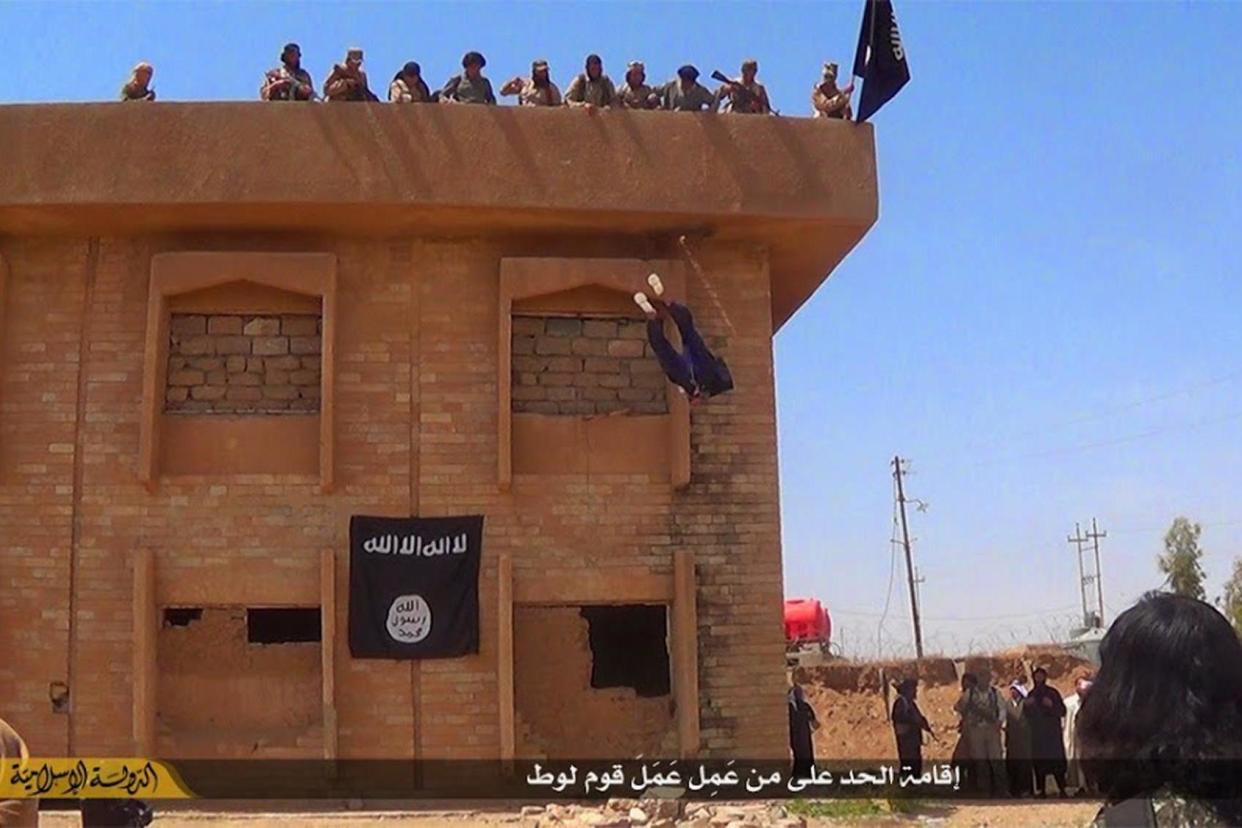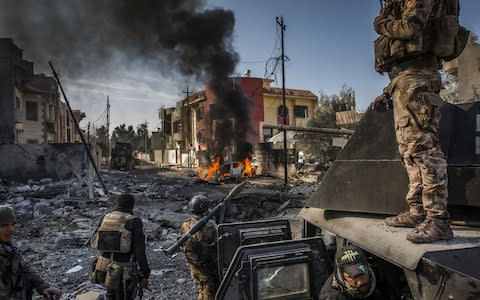Islamic State's caliphate 'wiped out' - but here's why Isis remain a 'huge threat'

The Islamic State caliphate has been completely wiped out, according to military sources.
Despite the victory over the territory in Syria, experts have warned that Isis will remain an “enormous threat”.
In 2014, the group blitzed across vast swathes of Syria, seizing Raqqa, and used the base to spread into north and western Iraq, capturing Mosul and later advancing to take the edges of Baghdad.
Since then, there have been international efforts to destroy the extremist group, which have now resulted in the fall of the self-proclaimed caliphate that once stretched over an area the size of Britain.
Dr Karin von Hippel, the former chief of staff to the special presidential envoy for the Global Coalition to counter Isis, said the fall of the group was an “important milestone”.
“It is the territorial defeat of Isil, but they still are an enormous threat,” Dr von Hippel, the current director general of the Royal United Services Institute (RUSI) think tank, added.
“Many thousands of them will remain in Iraq and Syria and they will go underground, they will conduct asymmetric attacks – they are already doing so in both countries.”
The director of international security studies at RUSI, Raffaello Pantucci, also warned that the territorial defeat of IS was not the end, and the “biggest danger” was stepping back.
“I think the danger is that we end up doing what happened in Iraq in 2009 – we just kind of left and left the whole place to its own devices,” he said.
“And essentially it didn’t get better, the governance continued to be a problem and that is how the environment was created for the group to grow in to.”
Despite the eradication of the caliphate, experts believe that soldiers of Isis remain, scattered in sleeper cells.

Dr von Hippel stressed that remaining fighters “will plan for future attacks” in both Syria and Iraq, and likely militant attacks on foreign soil.
“No-one knows for sure, of the 40,000 who went out to the region from over 100 countries, how many have survived,” she said.
“But certainly many thousands of them are going to different countries, they are not going back to their country of origin, they are going to different countries to prepare for different attacks.”
She said these fighters “are hardened and committed” and move from conflict to conflict, much like those jihadists who fought in Afghanistan, Chechnya and Bosnia.
Dr von Hippel highlighted how Libya would be an easy and close option for the foreign fighters to migrate to, and how, interestingly, there were “a number of them in Sudan”.
Meanwhile, with Isis offshoots in Yemen, Nigeria, Afghanistan and Egypt, Mr Pantucci said there were also concerns over the number of foreign militants heading to the Philippines.
According to Mr Pantucci, Islamic State is currently in a “waning moment”, but throughout their history, the group has both waxed and waned.
He believes that extremist groups such as Isis exist due to problems in governance and a sense of injustice amongst the citizens – usually driven by grievances against the state.
Mr Pantucci said that was why Isis was able to grow initially in Iraq, particularly because the Sunni Muslims felt the Shia government was against their interests.
“As long as that sense of grievance continues to exist, then fertile ground exists for the group to grow.
“This is exactly what we saw happen before,” he said, also highlighting how some of these grievances are re-emerging in Iraq, and that with the current “ungoverned conflict space” in Syria, “there is an environment” in which IS or another group could “take advantage and grow”.
Asked if IS would be likely to exploit the situation in Syria again, he added: “They will probably melt back into the shadows in Iraq, and then use that as a staging point to grow once again, because that is what they did last time to great effect.”
For Dr von Hippel, the fight against groups like Isis is a “generational challenge” – regardless of what they may call themselves next.
“We have seen various iterations of the same organisation,” she said. “Every time we get a new group it is more violent, more bloodthirsty than the previous one, which is concerning.”
She added: “We are not going to see the end of this. It is a movement, it is an ideology.”

